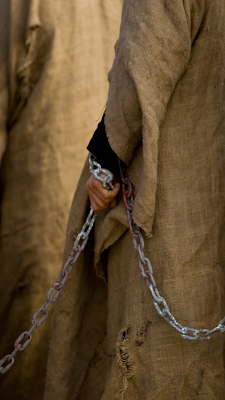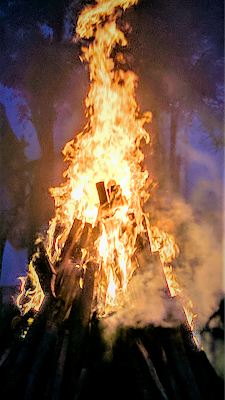In correspondence with a reader, I wrote: "Over the years, we've had discussions on various things on Citizen Warrior, trying to figure out how to speak about
the problem of Islam. One of the things we've talked about is what to call non-Muslims who think Islam is a religion of peace. We had a lively discussion about it
here." Here is his response:
What to call Non-Muslims who think Islam is a Religion of Peace...we could call them: Aloof. Here's an example: "the Aloofs were back at it again. They were talking about how we can all just get along and as I stood there listening to them I realized that these people are just Aloof. They have no desire to save themselves or to fight back, so we must do it for them. The Aloofs venture loudly into the world, sharing their propaganda with the other Non-Muslims who are quite aware what Islam is all about. But the Aloof's persist that Islam is good...
OR
I would just call those people "Islamic Sympathizers". To be honest we are facing the prelude to the massive extermination of Non-Muslims. So if some of the Non-Muslims want to be willingly ignorant and believe that Islam is "Peaceful" it really comes down to responsibility and we need to make them aware of that.
Example: If I was given the chance to warn people about Nazi Germany and tell them how horrific it was going to be I would call everyone who supported Hitler (supporting Hitler by being ignorant) a Sympathizer.
I conclude then that we need to not mock these "Aloofs", but lay the burden of mature responsibility on them, meaning that being "Aloof" about the most bigoted religion on earth is no longer an option for excuse.
I responded to him with this: Your point of view is fairly common in the counterjihad community and I'm glad you said it because I want to articulate something that has been crystallizing in my mind for quite some time.
Both the words "Aloof" and "Sympathizer" make the person wrong. But many people have
benign reasons for believing Islam is not dangerous. Many of the non-Muslims unacquainted with Islam are good people — smart people who care about the world and love their country. Their hearts are in the right place. Not all of them, of course, but certainly many of them. Probably most of the ones we talk to.
They have simply made some assumptions about Islam (and about religions and about human beings) that might normally be reasonable, but they're incorrect when it comes to Islam. They assume because it is a religion with a huge number of adherents, it couldn't possibly be the evil Nazi-like ideology the counterjihadists portray it to be. It COULDN'T be! Right?
And of course, any given person you're talking to probably knows several Muslims who are "
nice people." From their point of view, it seems reasonable to conclude that the terrorism going on in the world is caused by a few crazy
extremists giving Islam a bad name.
Most people unacquainted with Islam don't know
the immense scale and global scope of "terrorist attacks." Most people hear about only a very small percentage of the attacks that happen
every day in the name of Islam. And besides, "other religions also have bad things in their holy books," and so on. You've heard it all before. Most people would think this naturally (that it must be just a few extremists), as a result of plain old human decency and an acquaintance with other religions like Judaism, Buddhism and Christianity. And then the media and politicians and Islamic "experts" all
confirm what we all wish was true. PBS, one of the most trusted media sources in the U.S., has reinforced this misleading portrait of Islam (read more about that
here).
Probably
none of our non-Muslim friends and family are terrorist sympathizers. And if they thought they were really in danger, they might, in fact, have the desire to fight back and save themselves. But they have been persuaded to believe (and they really
want to believe) that we are not in danger from Islam. I don't think most of them are "willingly ignorant." They have an
enormous amount of mainstream, seemingly authoritative evidence from
most major information sources to confirm what they hope is true.
The article I mentioned above and ensuing discussion eventually concluded that the best word for non-Muslims who think Islam is a religion of peace is "unacquainted." Your portrayal of those unacquainted with Islam is negatively judgmental, which is completely understandable because you've obviously tried doing what all of us should be doing: talking with people and telling them what you've learned. And you have no doubt experienced the particular distaste of listening to someone sarcastically or condescendingly tell you how wrong you are — knowing that this person actually knows nothing about Islam — while talking to you, who knows quite a lot about it. It is frustrating. Infuriating! I get it. I've been there. And so have most of the people in the counterjihad movement.
But I think it would be helpful to our cause if we considered it as much
our failure as theirs. If we truly understood their point of view, and if we had some
acquirable skill in influencing people, that same conversation might well have ended with a new ally for our cause. Instead, we have entrenched that person more firmly in their position. We have failed. That point right there is where we will win or lose this whole, centuries-long conflict with Islam — right there in those "minor" personal conversations where people are either won over or shoved deeper into their self-righteous point of view (which unwittingly aids and abets the enemy).
Any of us can get better at those conversations. We can
become more influential. And if we don't, it is
we who have been negligent and irresponsible. We should consider ourselves lucky that we have been raised in a way or exposed to information in a way that we've been able to know the truth about
the problem of Islam. We shouldn't consider them to be willfully ignorant. There, but for the luck of the draw, is what you or I would be. And for many of us in the counterjihad, that is exactly what we
were at one point.
I was
totally ignorant of Islam until after 9/11. I didn't know anything about it, and never even wondered about it, even though
jihad has been going on my entire life. With the Israel/Palestine conflict. With the oil crisis. With the Iranian hostages. With all the hijacked airplanes, attacks on embassies, etc. I never put it together. I never would have guessed that a religion could teach something that would motivate people to do these things. I would have scoffed at the idea if anyone had told me. Not because I was a "sympathizer." Not because I was "willingly" ignorant, although I guess you could call me that, but it seems an unfair indictment. And I would fight back to save myself. I just didn't know there was anything to save myself from.
And I think when we talk to someone who is unacquainted with Islam, we would be more effective reaching them and successfully opening their eyes to this horrifying reality (
Islamic doctrine) if we didn't think of them as bad people, as irresponsible people, as traitors or sympathizers with enemies, or anything derogatory. I think we'd have more luck reaching them if we loved them. Or at least understood their point of view, and understood how they came to those conclusions.
I urge everyone to read
The Righteous Mind by Jonathan Haidt. It will help us all understand their point of view. It will help us get through. Here are some summaries and reviews of the book:
Citizen Warrior is the author of the book, Getting Through: How to Talk to Non-Muslims About the Disturbing Nature of Islam and also writes for Inquiry Into Islam, History is Fascinating, and Foundation for Coexistence. Subscribe to Citizen Warrior updates here. You can send an email to CW here.
Read more...









.png)




